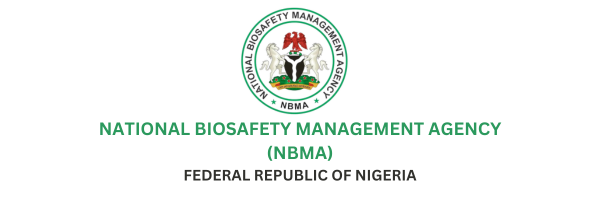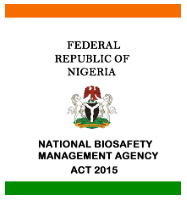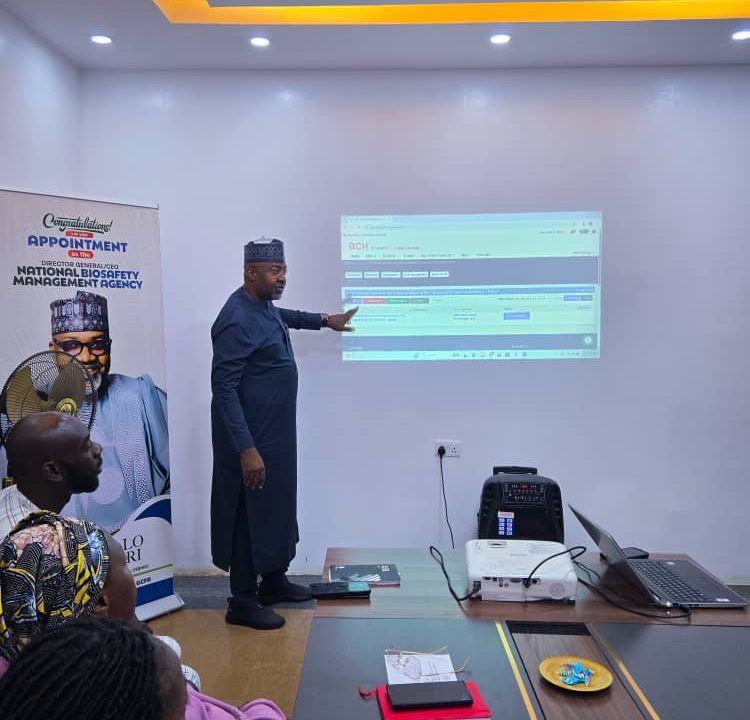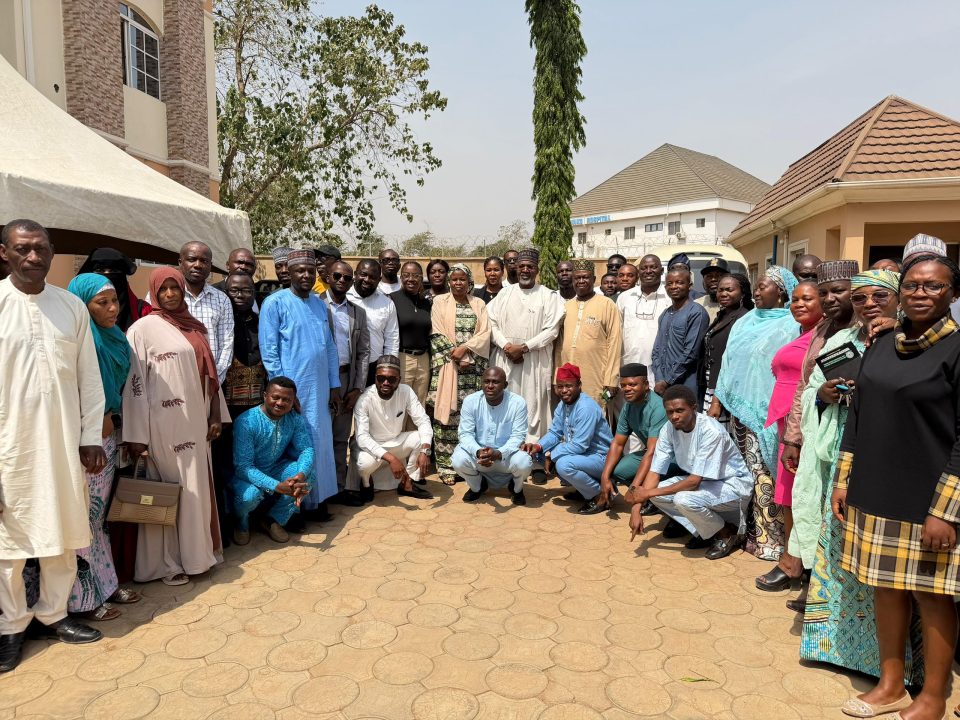- Reach us via:
- +2348082254683
- nbma@nbma.gov.ng
UNDERSTANDING NIGERIAN BIOSAFETY LAWS: SAFEGUARDING OUR HEALTH, ENVIRONMENT, AND FUTURE
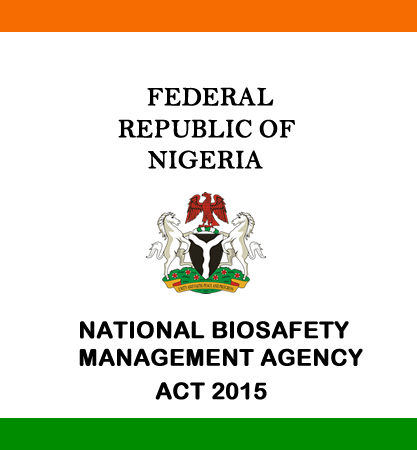
Biotechnology is revolutionizing agriculture, medicine, and industry around the world and Nigeria is no exception. But with innovation comes responsibility. That’s where biosafety steps in. To ensure that modern biotechnology is applied safely and responsibly, Nigeria established the National Biosafety Management Agency (NBMA) through the NBMA Act of 2015. This landmark law sets the foundation for regulating genetically modified organisms (GMOs) and other emerging biotechnologies in the country..
What Do Nigeria’s Biosafety Laws Cover?
Biosafety laws are not just legal documents; they are essential safeguards for public health, environmental protection, and scientific advancement. Here’s a breakdown of what the Nigerian biosafety framework includes:
1. A Robust Regulatory Framework
The NBMA Act provides clear guidelines for the safe handling, use, and release of GMOs and related products. From laboratories to farms to market shelves, every step is regulated.
2. Science-Based Risk Assessments
Before any genetically modified organism is approved for use in Nigeria, a thorough risk assessment is carried out to determine its potential impact on health and the environment.
3. Public Involvement Matters
The NBMA recognizes the importance of transparency. Public participation is embedded in decision-making processes to ensure that stakeholders — including farmers, scientists, and consumers — are heard.
3. Public Involvement Matters
The NBMA recognizes the importance of transparency. Public participation is embedded in decision-making processes to ensure that stakeholders — including farmers, scientists, and consumers — are heard.
4. International Standards, Local Commitment
Nigeria’s biosafety system is aligned with international best practices. In fact, the country plays a leadership role by chairing the African Biosafety Regulators Forum
5. Permits and Licensing
All GMO-related activities — from research to commercialization — require NBMA-issued permits and licenses, ensuring that every innovation meets safety standards.
Why Are Biosafety Laws So Important?
Protecting Human Health
Biosafety regulations ensure that GMOs and their products are safe for consumption, free from toxins or allergens, and rigorously evaluated before public exposure.
Preserving Our Environment
Unchecked biotechnology could disrupt ecosystems. NBMA laws help prevent that by controlling the release and spread of GMOs in our environment.
Boosting Agricultural Innovation
With clear rules in place, Nigeria can harness biotechnology to improve crop yields, develop disease-resistant varieties, and enhance food security.
Biosecurity and National Safety
Biosafety isn't just about nature — it's also about security. The NBMA ensures that biological agents are not misused for harmful purposes through stringent biosecurity protocols
Why Should You Care?
Whether you're a researcher, farmer, consumer, or just a concerned citizen, understanding biosafety laws empowers you to be part of Nigeria’s journey toward a safer, healthier, and more food-secure future.
By working together under a strong biosafety framework, we can unlock the full potential of biotechnology while safeguarding our people and planet.
Advancing Modern Science Safely Whether it’s gene editing, synthetic biology, or gene drive technology, biosafety laws ensure these tools are used responsibly and ethically.
Learn more about our laws, guidelines at:NBMA RESOURCES
